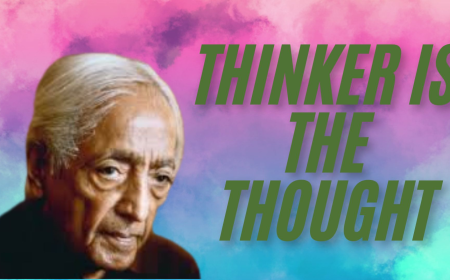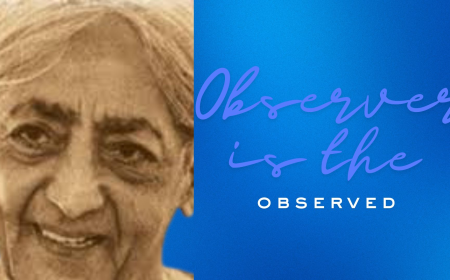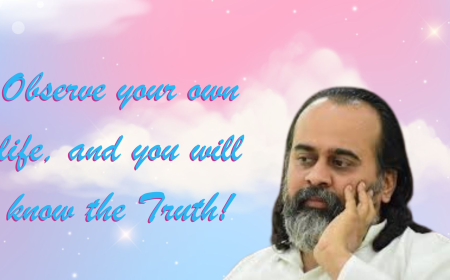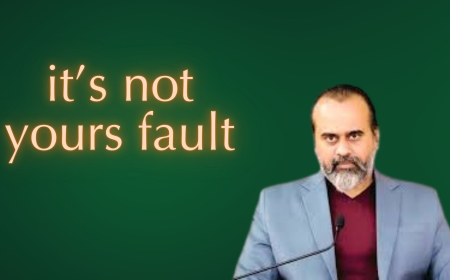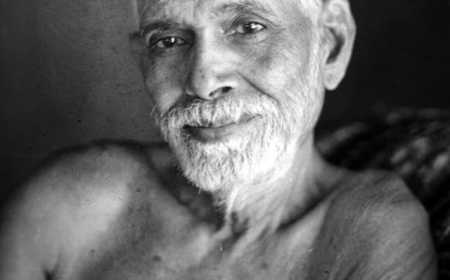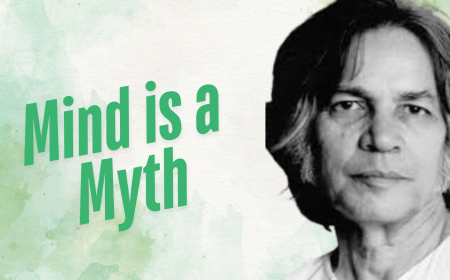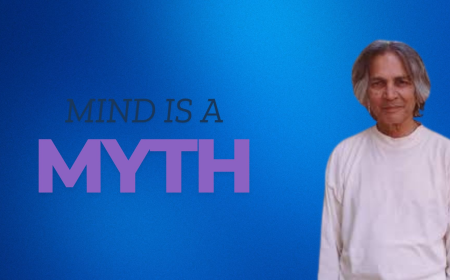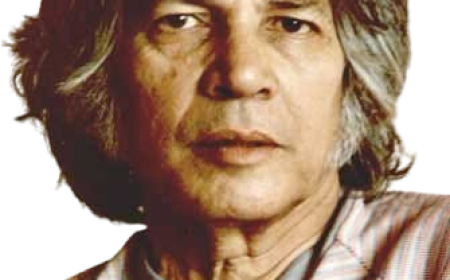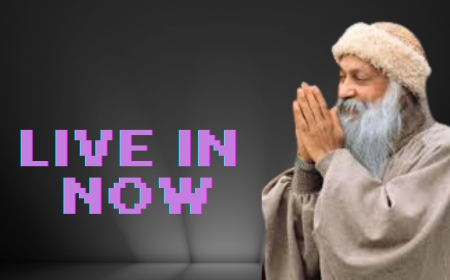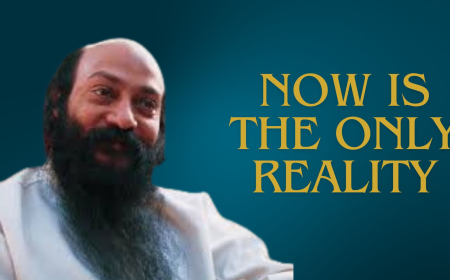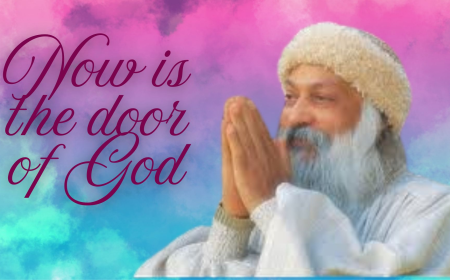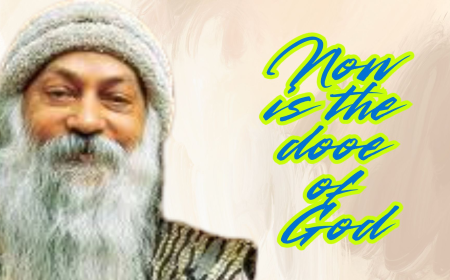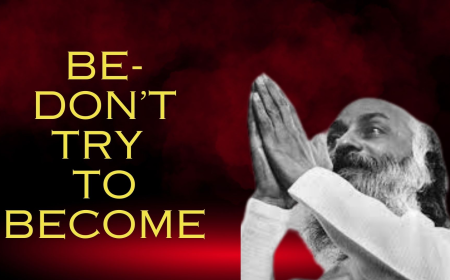The Concept of 'Witnessing' in Acharya Prashant's Teachings
Life is full of emotions, thoughts, and experiences. Often, we get caught up in them, feeling overwhelmed, happy, sad, or anxious. But what if we could observe everything without getting affected? This is where the concept of witnessing comes in.
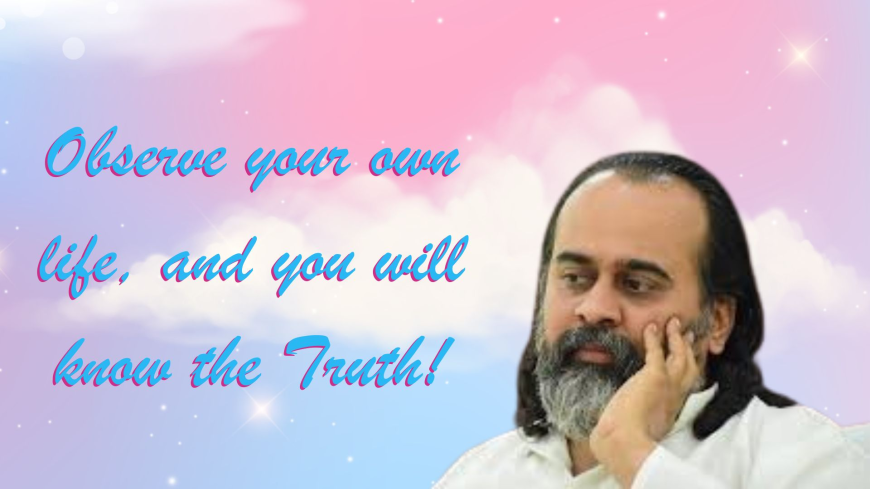
Introduction
Life is full of emotions, thoughts, and experiences. Often, we get caught up in them, feeling overwhelmed, happy, sad, or anxious. But what if we could observe everything without getting affected? This is where the concept of witnessing comes in.
Acharya Prashant, a modern spiritual teacher, emphasizes the power of witnessing in his teachings. According to him, witnessing is the ability to observe life—our thoughts, emotions, and actions—without attachment or judgment. By practicing witnessing, we can break free from unnecessary suffering and gain inner peace.
What is Witnessing?
Witnessing means watching everything that happens within and around us with complete awareness but without getting emotionally involved. It is like watching a movie—you see the characters and the story, but you don’t mistake it for your real life.
Key aspects of witnessing:
- Observation without reaction – Seeing thoughts and emotions without being controlled by them.
- Non-attachment – Understanding that everything is temporary, so there’s no need to cling.
- Being in the present – Fully aware of what’s happening, rather than lost in past regrets or future worries.
Acharya Prashant often says, “You are not your thoughts; you are the one watching them.” This simple realization can change how we experience life.
Why Do We Need to Witness?
Most of our suffering comes from overthinking, emotional reactions, and unnecessary attachments. We feel hurt, angry, or stressed because we identify too much with our thoughts and emotions.
By practicing witnessing:
✅ We stop overreacting – Situations no longer control our happiness.
✅ We gain clarity – Decisions become wiser because we see things as they are.
✅ We reduce stress – Less emotional burden means a calmer mind.
✅ We find inner freedom – Life flows smoothly when we stop holding on too tightly.
Example:
Imagine someone criticizes you. Instead of reacting with anger or sadness, witnessing allows you to step back and observe: “I notice irritation arising in me. But do I have to act on it?” This gap between reaction and response creates true freedom.
How to Practice Witnessing in Daily Life
Witnessing is not something separate from life—it can be done anywhere, anytime.
1. Observe Your Thoughts and Emotions
- Whenever a thought arises, instead of getting lost in it, simply notice it.
- Ask yourself: Who is watching this thought? This shifts your focus from thinking to observing.
2. Create a Pause Before Reacting
- When faced with a situation, take a deep breath and observe how you feel.
- Ask: Do I need to react, or can I just let this pass?
3. Meditate Daily
- Sit quietly for a few minutes and watch your breath, thoughts, or surroundings without judgment.
- Meditation strengthens your ability to witness everything calmly.
4. Let Go of Labels
- We often judge experiences as "good" or "bad." Instead, just witness them as they are.
- Life is not happening to you, it is just happening.
Example:
While eating, fully focus on the taste, texture, and smell of the food instead of letting the mind wander. This simple practice develops the habit of witnessing.
Witnessing vs. Suppression
Some people confuse witnessing with suppressing emotions. But they are not the same!
❌ Suppression – Pushing emotions away, pretending they don’t exist.
✅ Witnessing – Acknowledging emotions but not letting them control you.
Acharya Prashant explains that true witnessing means being aware of emotions without fighting them. Instead of forcing positivity, simply watch and allow emotions to come and go naturally.
Example:
If you feel sadness, don’t suppress it. Just observe: “Sadness is present. Let me watch it without judgment.” Soon, you’ll see that it fades on its own.
The Ultimate Benefit: Freedom from Suffering
Witnessing frees us from unnecessary mental noise and suffering. When we stop identifying with every passing thought or emotion, we find true peace.
✅ Life feels lighter – Less burden from overthinking.
✅ Emotions don’t overpower us – We stay calm in tough situations.
✅ We develop inner wisdom – Actions come from clarity, not impulse.
Final Thought:
Acharya Prashant’s teachings on witnessing remind us that we are not our problems, emotions, or thoughts. We are simply the awareness that watches everything. The more we witness, the freer we become.
So, the next time life feels overwhelming, take a step back and just watch.
Conclusion
The practice of witnessing, as taught by Acharya Prashant, is a simple yet profound way to live with peace, clarity, and freedom. By observing without attachment, we break free from unnecessary stress and suffering.
Would you like to try witnessing in your daily life? Start now—just observe your next thought without getting involved. You are the watcher, not the thought.
What's Your Reaction?



















